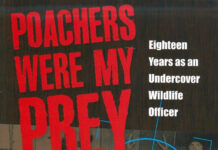From Washington D.C., the telegram is addressed to Mr. Harry Thompson, St. Clair Avenue, East Liverpool, Ohio.
Yellowed and fragile, it is dated Aug. 18, 1918.
The sender is “P.C. Harris Acting AJE GENL.”
Its message is as haunting today as it was then, when some 4 million men and boys from across the United States were serving abroad in World War I, hailed as The War to End All Wars. It had begun April 6, 1917.
The war ended Nov. 11, 1918, on what now is celebrated as Veterans’ Day. Known until 1954 as Armistice Day, that date is a federal legal holiday in every state, somberly celebrated by a population that has seen far too many more wars since that one that did not end all wars.
Official news. What was the message personally delivered to Harry Thompson and his family on that August day, just three months before the end of the war?
“Deeply regret to inform you that it is officially reported that Sergeant Kenneth H. Thompson, Infantry, died August nineth (sic) of wounds received in action.”
He was one of 53,513 battle deaths by the end of the war.
Kenneth was the uncle I never knew. Most notably, he was the first East Liverpool and Columbiana County soldier to die in WWI.
Painful memories. His sister, my mother, Berenice Thompson Steinfeld, never spoke of her baby brother and long ago wrote in a letter to my sister that “to this day I cannot mention his name.”
Nor did she ever disclose, at least to me, that while emptying my grandfather’s house after his death, she found letters from Kenneth, a piece of shirt material bearing his sergeant’s stripe, the crossed rifle insignia of the 58th Infantry, plus another square of shirt material with four embroidered stars around the Roman numeral IV, representing the Fourth Infantry.
Also saved were the official proclamations of his appointments to corporal and then to sergeant, and the final proclamation from the Army certifying that Kenneth H. Thompson “died with honor in the service of his country.”
It was signed on Nov. 21, 1918, just nine days after the Armistice.
Newly discovered. These historic treasures came to light only when my sister’s home had to be emptied following her irreversible stroke on Thanksgiving Day 2006. I never knew they existed, as our mother never mentioned anything about Kenneth.
Kenneth was only 18 when, according to a letter from P.C. Harris, AGO, dated Oct. 23, 1919, he “was admitted to Evacuation Hospital No. 3, Aug. 7, 1918, on account of gun shot wound. The following day he underwent an operation, dying at 11:18 a.m. from gas gangrene following the operation.”
Along with some of the letters Kenneth sent home was a piece of paper from the Homer Laughlin China Co. On it, his father’s handwriting records Kenneth’s and his older brother’s enlistments: “Joe enlisted in the Regular Army in Signal Corps Reserves at Pittsburgh, Pa., July 19, 1917, and Ken enlisted in the Regular Army as Infantryman July 20, 1917. Started for Cleveland on July 24th. Passed Exam July 25th. Went to Columbus barracks July 25th. Entrained at Columbus for Gettysburg, arrived July 30.”
Eager to start. On Jan. 28, 1918, Kenneth wrote from Charlotte, N.C., to his sister: “I was very glad to get your packages today and the contents certainly made me feel gladder. That marmalade sure is great and oh how good the butter tastes.
“… Gosh, but it is surely muddy here, half a foot deep. And the hell of it is we are quarantined. There is an outbreak of meningitis in Charlotte and we can’t go to town. And Liberty Park, the only other place of amusement is closed to (sic) so we are forced to stay at home.
“I was hoping we would move soon but it appears that we may stay here quite a while. Dam (sic) it Sis, I want to get to France and see something. … Lovingly, Ken. Tell Dad and Ma to look out for a letter soon.”
News from France. On July 21, 1918, from “Somewhere in France” he wrote to his parents:
“I know you are anxious to hear from me and it has surely been quite a while since I have had an opportunity to write, but you must have received my safe arrival card and know that I am quite safe and well. This is a most peculiar country and the people live in a very crude manner. It seems odd to see women and old men working.
“You probably know by the papers that the U.S. boys are doing great work over here. Just wait until our regiment gets in working order. We are housed in billets in a hay mow and it is surely good sleeping. We attended the memorial services this morning held in remembrance of the men who were lost at sea. There were 50 some of them who were drowned when the ship they were on was torpedoed.
“… We are within sounding distance of the firing line and the howitzers surely sounded off last night. It was like the 4th of July.”
He apologizes for not being able to attend his sister’s wedding (my mother’s to my father!) and signs off, “Lovingly, Ken.”
Last words. One of the most poignant letters is one from a Jack Green of Methnew, Mass., to Kenneth’s father on Sept. 2, 1919. he writes:
“I am writing you these few lines to inform you that I have in my possession a small pocket diary which belonged to your son, Kenneth, and I will forward it to you as soon as I hear from you. (Janie’s note: That diary has not been found.)
“I was present with the company when Kenneth, who was then 1st Sergeant, was hit by shrapnel in August 1918 and I saw him being taken away by the stretcher bearers. After that engagement, I was made assistant company clerk to Cpl. George Jones who was company clerk at that time. Cpl. Jones was also killed in the Argonne in October 1918 and I was then made company clerk and in the field desk I found Kenneth’s diary …
“These were the only things my comrades left behind and I have taken great care of them all the time and carried them on my person so they would not get lost as I know that you would place great value on Kenneth’s diary and I decided that it would be best to bring t back to the States with me and then send it to you. So hoping to hear from you very soon, I am Yours Respectfully …”
Credit for saving this important historical material must be shared first by my late mother; my sister, Barbara Mick, who is nonresponsive in a Massachusetts nursing home; and lastly, but perhaps most importantly by her son and daughter-in-law.
ELO connection. The house at 2230 St. Clair Avenue in East Liverpool in which my mother, Joseph and Kenneth grew up is now occupied by the Birch Realty. As children, my sister and I spent many happy hours visiting our grandparents, and I have photographs of us sitting with our dolls on the back porch.
On a recent visit to East Liverpool, I walked to that back porch and was overwhelmed with nostalgia, remembering the time we spent there.
My grandmother, Eva, died when my mother, Berenice was 12, and my grandfather, Harry, remarried. The only grandmother my sister and I knew was the former Sadie Thomas. We called her “Nanny” and she was all that a grandmother should be and more.
It should be noted that a year or so after Kenneth’s death, then East Liverpool American Legion Post No. 4 (no longer is existence) and the City of East Liverpool sent Harry and Sadie to France so they could visit the grave of their heroic son.
All of this material, including a few letters from my uncle, the late Joseph R. Thompson of East Liverpool, is to be given to the East Liverpool Historical Society to be forever preserved.
Get 4 Weeks of Farm and Dairy Home Delivered












